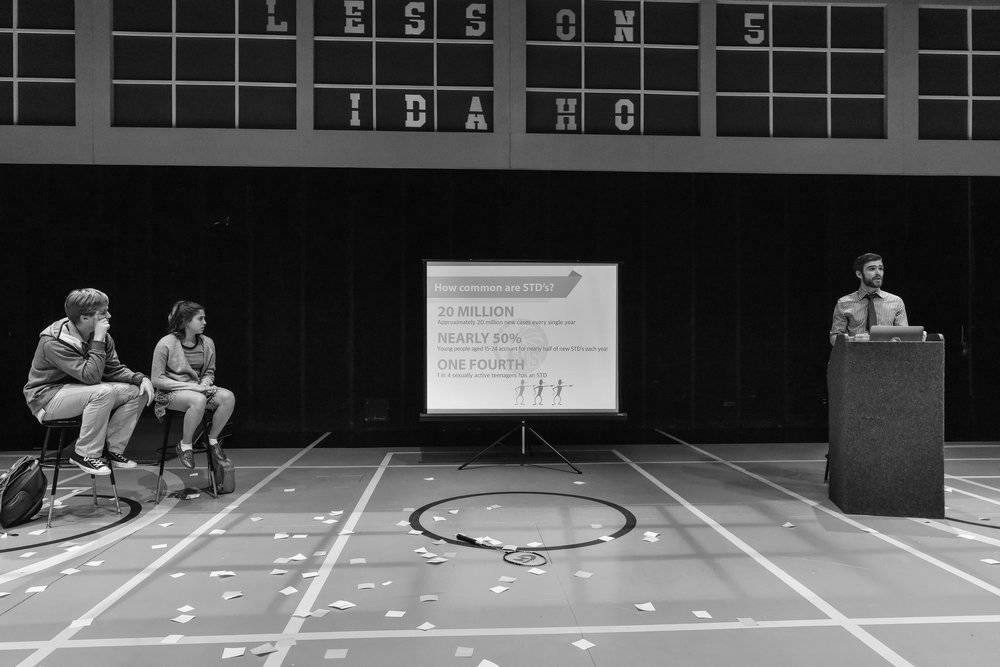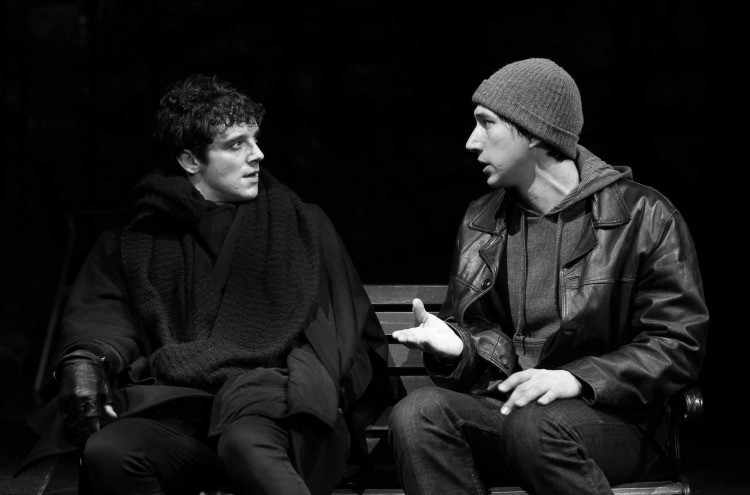The Futility of "Now More Than Ever"

Every time I'm with my friends and someone mentions the phrase "now more than ever" in reference to some piece of theatre, we turn to one another to roll our eyes. We've heard it so many times that it doesn't mean much of anything. "Now more than ever" is worse than an empty phrase to us. It's a joke.
Now, we're all theatre makers and lovers - we understand that theatre is important, and indeed there're countless reasons why theatre is particularly important right now. But "now more than ever" is everywhere, plastered on every show, no matter where you look. It seems like every show has to get its foot in the door to prove why it's relevant - even if there is no reason it should be. But why?
Art, by definition, is political. Of course, some art engages more heavily with overtly political themes. But even a show choosing to avoid political elements is political because it consciously rejects these elements. Art does not and cannot exist in a void, and it's senseless to pretend otherwise. In the age of Trump, it becomes harder and harder to avoid addressing political issues in some form. Even escapism in bright colors and comedy is branded as a pacifier for the anxieties of living in a chaotic and divided world.
Since the chaos is so difficult to avoid, it seems that many have decided it needs to be embraced. Thus there's now countless shows placing political messages in where they may not belong, claiming their show is important "now more than ever" because it mentions a major political topic such as immigration, LGBT+ rights, racism, or feminism. The key word here is "mentions". Talking about a theme in a show without any exploration of it means nothing in the end.
So, what about those shows that actually engage with those issues? Shouldn't they deserve that label of "now more than ever"? Well, not necessarily.
A lot of shows tackling major issues are pushing a liberal, left-leaning perspective meant to challenge the views of the conservatives who currently hold political office. But when the vast majority of your audience is already liberal and left-leaning, what's the point? No one's mind will change. It will only be a room full of liberals patting themselves on the back for saying what everyone already knows. Despite what Robert DeNiro thinks, there's no point in saying "Trump is bad! Racism is wrong! Feminism is important! We need LGBT+ equality!" when everyone in the room already agrees.
Perhaps this is why Building the Wall, a play by Robert Schenkkan that premiered Off-Broadway only a few months after the 2016 election, felt so hollow. It was filled with genuine anger and terror about the future of America, predicting martial law and disgusting abuse of power. It placed a working-class white Trump supporter against an educated, liberal black woman. It confirmed all the fears of the liberals of the audience, and validated their views through the characters on the stage. It came too soon and said nothing more than what had already been said and thought.
It seems the best way to avoid this is to wait. Tony Kushner's Angels in America, perhaps the most important play in recent history, premiered in the early 1990s while recounting the events of the 1980s AIDS crisis. Kushner's hindsight allowed for a far more balanced look at the tragedy, one with genuine hope and a deeper understanding of everything that happened without the chaos of the presence. Angels recently received a highly acclaimed Broadway revival, and it too received a label of "now more than ever." But what makes Angels different is that its message runs far beyond "Reagan is bad." The play steps beyond its immediate setting to discuss how human nature is to progress, and even the darkest days will fade as the world turns forward. That message is important now, but maybe not more than ever. It is an eternal truth of humanity. (Speaking of Kushner today, he is currently working on a play about Trump. But don't expect it out any time soon... and don't expect it to recount current events, as it will be taking place two years before the 2016 election.)
As vital as Angels is to the world right now, I would claim another of Kushner's works better fits the notion of a play we need "now more than ever."
A Bright Room Called Day, Kushner's first major play, details the rise of Adolf Hitler through the eyes of a band of artists living in late 1930s Berlin. They range from Trotskyites to anarchists, but all are Leftist and oppose fascism and Hitler. Agnes, an actress who decides she wants to join the Communist party, provides the meeting place for her friends in her comfortable apartment.
Their story is interrupted by a young Jewish woman named Zillah living in the 1980s, who meditates on the meaning of evil and equates Reagan and Hitler. Kushner, known for rewriting his plays, has considered bringing Zillah to modern day to compare the Führer with our current president. But this is not necessary - the disturbing parallels in the play speak for themselves.
One character gossips about the strange habits of Hitler in bed. Another dismisses the Nazi Party for its lack of coherence. One particularly chilling moment for me is when Agnes and her lover Husz discuss Hitler's gradual ascent and inevitable rise to position of Chancellor. A tired Husz tells Agnes, "There'll be uprisings. His government will be short-lived." She responds, "For a thousand years." He laughs and says, "Nothing ever lasts that long."
To me, that sounds almost exactly like my father finding me weeping the morning after the 2016 election and trying to explain that he didn't think the president would make it all four years. Well, we all know what happened with Hitler...
What makes Bright Room so powerful is that it challenges a liberal audience. The political infighting on the Left leads to fracturing and allows Hitler to seize power. And our lovable Leftist protagonist Agnes doesn't end up happy, justified by her political views. Instead, her inability to dedicate herself to anything other than her cozy apartment leaves her heartbroken and alone. Bright Room tells audiences not to get too comfortable, not to get so caught up in details, not to forget to take action before it's too late. "Don't put too much stock in a good night's sleep," Zillah advises. "During times of reactionary backlash, the only people sleeping soundly are the guys who're giving the rest of us bad dreams. So eat something indigestible before you go to bed, and listen to your nightmares."
Now that is a message we need now more than ever.
(Photo credit: James Badge Dale and Tamara Tunie in Building The Wall. Photo by Carol Rosegg. )




